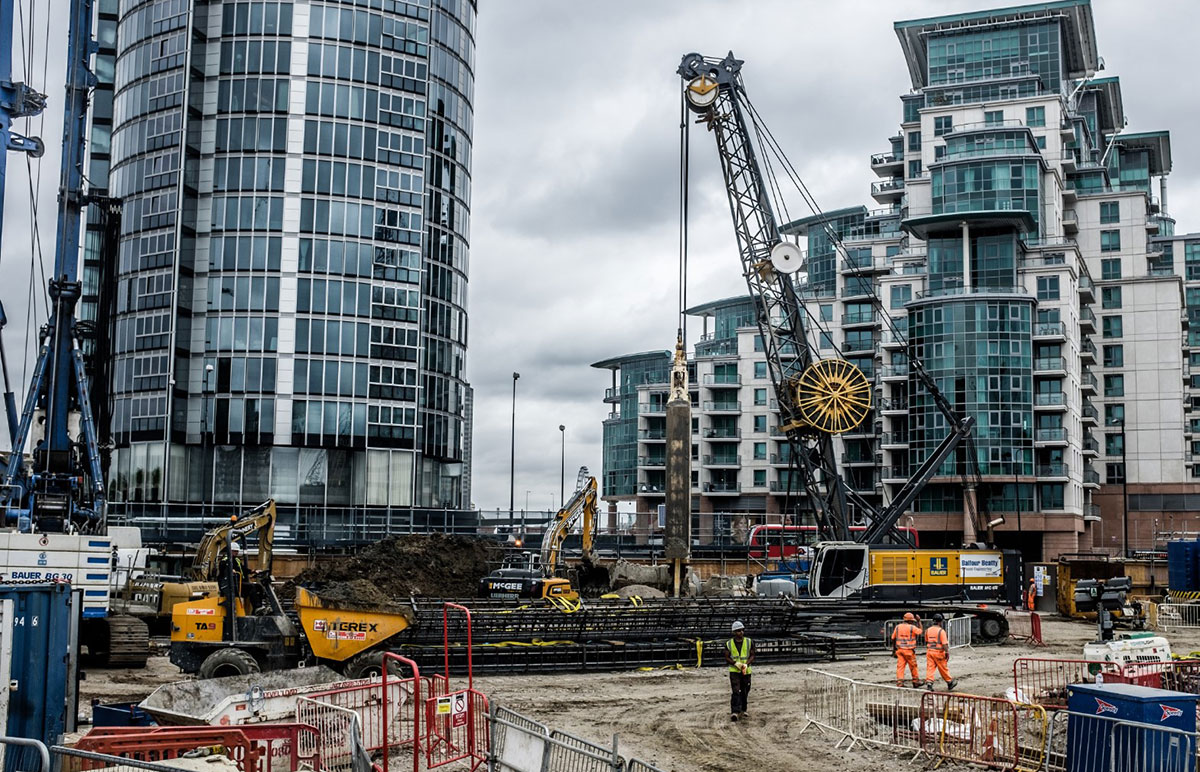Some Known Details About Geotheta
Table of ContentsThe Ultimate Guide To GeothetaSome Ideas on Geotheta You Need To KnowThe Buzz on GeothetaThe Single Strategy To Use For GeothetaSee This Report on Geotheta

They perform site investigations, gather samples, do laboratory tests, and assess information to assess the viability of the ground for construction jobs - Geo Tech Engineer. Based upon their searchings for, geotechnical designers offer referrals for structure layout, slope stability, maintaining structures, and mitigation of geotechnical threats. They collaborate with other experts, such as designers, structural engineers, and building groups, to make sure that geotechnical factors to consider are integrated right into the general job design and application
By examining the behavior and residential properties of soil and rock, they can determine potential geotechnical dangers such as landslides, dirt negotiation, or slope instability. Their experience aids prevent failings or crashes that could jeopardize lives and residential or commercial property. Right here are some comprehensive obligations and duties of a geotechnical designer: Site Investigation: Geotechnical designers conduct website examinations to gather data on subsurface problems.
They translate the information to comprehend the buildings and behavior of the soil and rock, including their strength, leaks in the structure, compaction attributes, and groundwater conditions. Geotechnical Evaluation and Design: Geotechnical engineers analyze the data collected throughout website examinations to assess the security and suitability of the site for construction jobs. They carry out geotechnical estimations and modeling to review factors such as birthing capacity, negotiation, incline security, side earth stress, and groundwater circulation.
What Does Geotheta Do?
Structure Design: Geotechnical designers play a critical role in creating foundations that can safely sustain the designated framework. They assess the dirt problems and load demands to identify the ideal foundation type, such as shallow structures (e.g., footings), deep structures (e.g (https://pubhtml5.com/homepage/jugmn/)., stacks), or specialized methods like dirt improvement. They think about aspects such as settlement limits, bearing capacity, and soil-structure communication to develop optimal structure styles
They assess building strategies, display site tasks, and carry out field inspections to verify that the layout referrals are complied with. If unexpected geotechnical issues arise, they examine the situation and give referrals for remediation or modifications to the layout. Risk Evaluation and Mitigation: Geotechnical designers evaluate geotechnical dangers and risks related to the job site, such as landslides, liquefaction, or dirt disintegration.

Cooperation and Interaction: Geotechnical designers work very closely with other specialists included in a project, such as engineers, structural designers, and building and construction groups. Reliable interaction and collaboration are vital to integrate geotechnical considerations right into the total job design and construction process. Geotechnical designers offer technological know-how, solution queries, and make certain that geotechnical requirements are satisfied.
How Geotheta can Save You Time, Stress, and Money.
Here are some kinds of geotechnical designers: Structure Designer: Foundation designers concentrate on developing and assessing structures for frameworks. They evaluate the soil conditions, load requirements, and site characteristics to determine the most suitable structure type and style, such as shallow structures, deep foundations, or specialized techniques like heap structures.
They evaluate the aspects affecting incline stability, such as soil residential or commercial properties, groundwater conditions, and slope geometry, and develop methods to avoid slope failures and minimize threats. Quake Designer: Quake designers concentrate on assessing and making frameworks to withstand seismic forces. They assess the seismic hazard of a website, review dirt liquefaction capacity, and develop seismic design requirements to make sure the safety and security and strength of structures throughout quakes.
They do area screening, accumulate examples, and evaluate the gathered data to characterize the dirt homes, geologic formations, and groundwater conditions at a site. Geotechnical Instrumentation Engineer: Geotechnical instrumentation engineers concentrate on tracking and determining the behavior of dirt, rock, and structures. They install and keep instrumentation systems that keep an eye on factors such as dirt settlement, groundwater levels, slope movements, and architectural displacements to analyze performance and give early cautions of prospective issues.
The Basic Principles Of Geotheta
They carry out examinations such as triaxial tests, consolidation tests, straight shear tests, and leaks in the structure tests to gather data for geotechnical evaluation and layout. Geosynthetics Engineer: Geosynthetics designers specialize in the design and application of geosynthetic products, such as geotextiles, geogrids, and geomembranes. They make use of these materials to boost soil stability, reinforce slopes, provide drainage options, and control disintegration.
They tend to be investigatory people, which means they're intellectual, introspective, and analytical. They are interested, methodical, logical, analytical, and sensible. Some of them are likewise social, suggesting they're kind, generous, cooperative, person, caring, handy, understanding, skillful, and friendly. Does this noise like you? Take our cost-free job examination to learn if geotechnical designer is just one of your leading career matches.
In the workplace atmosphere, geotechnical designers use specialized software program devices More Bonuses to carry out calculations, create layouts, and evaluate data. They prepare records, evaluation project specifications, connect with customers and employee, and coordinate project activities. The office setting supplies a favorable environment for study, analysis, and collaboration with various other specialists associated with the job.
The Geotheta Statements
They often visit job sites to carry out website investigations, assess geotechnical problems, and collect information for evaluation. These brows through entail traveling to different places, often in remote or challenging terrains. Geotechnical designers might perform dirt tasting, conduct tests, and screen building and construction activities to ensure that the geotechnical aspects of the job are being implemented appropriately.
Geotechnical designers also work in specialized geotechnical research laboratories. In these facilities, they perform experiments, perform tests on dirt and rock examples, and analyze the engineering residential properties of the products. Geotechnical laboratory engineers function thoroughly in these environments, taking care of screening devices, running tools, and taping data. They work together with various other research laboratory staff to ensure exact and reputable testing results.